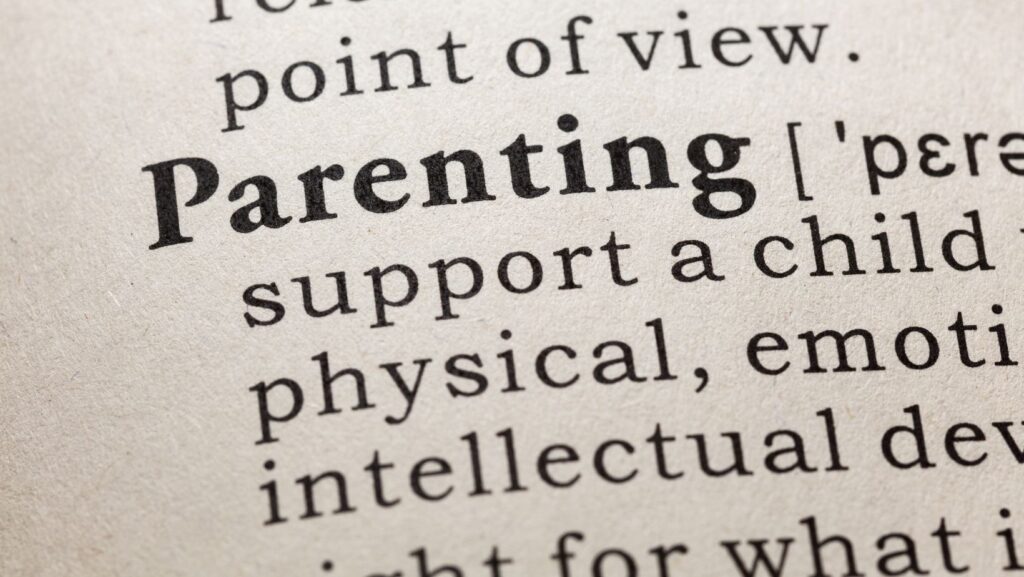 In the evolving landscape of modern American society, the question of which parenting style reigns supreme is more pertinent than ever. With a myriad of approaches ranging from authoritative to permissive, parents find themselves navigating through a sea of advice to discover what’s best for their children. This quest not only reflects the diversity of American families but also highlights the changing dynamics of parent-child relationships in contemporary settings.
In the evolving landscape of modern American society, the question of which parenting style reigns supreme is more pertinent than ever. With a myriad of approaches ranging from authoritative to permissive, parents find themselves navigating through a sea of advice to discover what’s best for their children. This quest not only reflects the diversity of American families but also highlights the changing dynamics of parent-child relationships in contemporary settings.
The consensus among experts suggests a shift toward more balanced and research-backed methods. These approaches emphasize understanding, empathy, and structured guidance, aiming to foster independence while ensuring emotional security. As we delve into the nuances of modern parenting, it becomes clear that the preferred style is one that adapts to the individual needs of the child, promoting a well-rounded development in today’s fast-paced world.
Which Parenting Style Is Most Encouraged In Modern America?
The Four Main Types
 Which parenting style is most encouraged in modern america?: authoritative, authoritarian, permissive, and uninvolved. Each style carries distinctive characteristics and approaches to child-rearing.
Which parenting style is most encouraged in modern america?: authoritative, authoritarian, permissive, and uninvolved. Each style carries distinctive characteristics and approaches to child-rearing.
-
Authoritative parenting combines responsiveness with clear boundaries. Parents who adopt this style are supportive and willing to listen to their children’s opinions while enforcing rules and expecting maturity.
-
Authoritarian parenting emphasizes strict discipline and obedience. Parents expect orders to be followed without discussion.
-
Permissive parenting is characterized by leniency and a lack of discipline. Parents are affectionate but provide little guidance or structure.
-
Uninvolved parenting, the least recommended approach, involves minimal interaction. Parents meet basic needs but are generally detached from their children’s lives.
Historical Context
 The evolution of recommended parenting styles in America reflects broader societal changes. In the early 20th century, the authoritarian style was prevalent, influenced by a belief in strict discipline. However, by the mid-20th century, research by psychologists like Diana Baumrind led to a shift towards more democratic, understanding approaches. The authoritative style emerged as the ideal, combining firm guidelines with emotional support and respect for children’s autonomy.
The evolution of recommended parenting styles in America reflects broader societal changes. In the early 20th century, the authoritarian style was prevalent, influenced by a belief in strict discipline. However, by the mid-20th century, research by psychologists like Diana Baumrind led to a shift towards more democratic, understanding approaches. The authoritative style emerged as the ideal, combining firm guidelines with emotional support and respect for children’s autonomy.
Recent decades have seen a continued emphasis on the authoritative style, supported by research indicating its positive impact on child development. Experts highlight its effectiveness in fostering responsible, well-adjusted individuals who are prepared for the challenges of modern life.
The Rise of Authoritative Parenting in Modern America
Characteristics of Authoritative Parenting
 which parenting style is most encouraged in modern america? stands out for its balanced approach, blending high expectations with emotional support and respect for child autonomy. This parenting style is characterized by clear, consistent rules that are explained with reasoning, reinforcing the importance of guidelines while encouraging open communication. Parents employing this approach listen actively to their children’s opinions, fostering an environment of mutual respect. They provide ample support and guidance, yet allow children to make decisions, learning from their own mistakes within a safe boundary. This method effectively promotes independence, critical thinking, and self-regulation.
which parenting style is most encouraged in modern america? stands out for its balanced approach, blending high expectations with emotional support and respect for child autonomy. This parenting style is characterized by clear, consistent rules that are explained with reasoning, reinforcing the importance of guidelines while encouraging open communication. Parents employing this approach listen actively to their children’s opinions, fostering an environment of mutual respect. They provide ample support and guidance, yet allow children to make decisions, learning from their own mistakes within a safe boundary. This method effectively promotes independence, critical thinking, and self-regulation.
Why It’s Popular Today
 The popularity of authoritative parenting in modern America can be attributed to its strong alignment with contemporary values of individualism and personal growth. In a fast-evolving society, where critical thinking and emotional intelligence are highly prized, this approach equips children with the skills necessary to navigate challenges successfully. Research consistently shows that children raised with authoritative parenting display better social skills, higher academic performance, and lower levels of depression and anxiety. These positive outcomes have been widely publicized, encouraging more parents to adopt this style. Additionally, authoritative parenting’s focus on balance resonates with modern American parents striving to nurture well-rounded, confident individuals capable of expressing themselves and respecting others. Therefore, considering which parenting style is most encouraged in modern America, authoritative parenting emerges prominently for its comprehensive benefits aligning with societal progress and values.
The popularity of authoritative parenting in modern America can be attributed to its strong alignment with contemporary values of individualism and personal growth. In a fast-evolving society, where critical thinking and emotional intelligence are highly prized, this approach equips children with the skills necessary to navigate challenges successfully. Research consistently shows that children raised with authoritative parenting display better social skills, higher academic performance, and lower levels of depression and anxiety. These positive outcomes have been widely publicized, encouraging more parents to adopt this style. Additionally, authoritative parenting’s focus on balance resonates with modern American parents striving to nurture well-rounded, confident individuals capable of expressing themselves and respecting others. Therefore, considering which parenting style is most encouraged in modern America, authoritative parenting emerges prominently for its comprehensive benefits aligning with societal progress and values.
Comparing Parenting Styles
Authoritarian vs. Authoritative
 In distinguishing between authoritarian and authoritative parenting styles, the emphasis lies on control and communication. Authoritarian parents enforce strict rules and expect obedience without question, often resulting in a lack of dialogue between parent and child. This style contrasts sharply with authoritative parenting, where rules exist but are explained. Authoritative parents support open communication, encouraging children to express their thoughts and feelings. While both styles demonstrate high expectations, authoritative parenting balances these with emotional support and respect for the child’s autonomy.
In distinguishing between authoritarian and authoritative parenting styles, the emphasis lies on control and communication. Authoritarian parents enforce strict rules and expect obedience without question, often resulting in a lack of dialogue between parent and child. This style contrasts sharply with authoritative parenting, where rules exist but are explained. Authoritative parents support open communication, encouraging children to express their thoughts and feelings. While both styles demonstrate high expectations, authoritative parenting balances these with emotional support and respect for the child’s autonomy.
Permissive vs. Uninvolved
 Permissive and uninvolved parenting styles represent less structured approaches. Permissive parents are indulgent, often setting fewer rules and allowing children more freedom. They tend to be very nurturing and communicative but may lack consistency in discipline, potentially leading to issues with authority and self-discipline in children. Uninvolved parenting, on the other hand, is characterized by a marked lack of attention and responsiveness to a child’s needs. Parents may provide basic care but are generally detached from their child’s life. This lack of involvement can result in significant negative outcomes for children, including emotional and social difficulties. The contrast with permissive parenting lies in the level of warmth and communication; permissive parents are warm and communicative, whereas uninvolved parents are not.
Permissive and uninvolved parenting styles represent less structured approaches. Permissive parents are indulgent, often setting fewer rules and allowing children more freedom. They tend to be very nurturing and communicative but may lack consistency in discipline, potentially leading to issues with authority and self-discipline in children. Uninvolved parenting, on the other hand, is characterized by a marked lack of attention and responsiveness to a child’s needs. Parents may provide basic care but are generally detached from their child’s life. This lack of involvement can result in significant negative outcomes for children, including emotional and social difficulties. The contrast with permissive parenting lies in the level of warmth and communication; permissive parents are warm and communicative, whereas uninvolved parents are not.
The Impact of Culture and Society
 Culture and society significantly influence parenting styles and perceptions of what is most beneficial for child development. In modern America, the authoritative style aligns well with societal values of individualism, personal growth, and democratic ideals. This style supports a child’s independence while also ensuring they understand the boundaries and rules. As American society continues to value education, emotional intelligence, and social skills, the authoritative approach remains encouraged. It’s seen as fostering resilience, critical thinking, and adaptability—traits that are highly valued in today’s fast-paced, ever-evolving world.
Culture and society significantly influence parenting styles and perceptions of what is most beneficial for child development. In modern America, the authoritative style aligns well with societal values of individualism, personal growth, and democratic ideals. This style supports a child’s independence while also ensuring they understand the boundaries and rules. As American society continues to value education, emotional intelligence, and social skills, the authoritative approach remains encouraged. It’s seen as fostering resilience, critical thinking, and adaptability—traits that are highly valued in today’s fast-paced, ever-evolving world.
The Benefits of Authoritative Parenting
Academic Success and Emotional Well-being
 Authoritative parenting significantly correlates with higher academic performance among children. Studies demonstrate that when parents provide guidance while respecting their child’s autonomy, it fosters a conducive environment for learning. Children raised in such environments tend to exhibit superior problem-solving skills and behavioral regulation. This style’s emphasis on supportive communication and high expectations cultivates an intrinsic motivation for learning, leading to higher grades and a greater likelihood of pursuing higher education.
Authoritative parenting significantly correlates with higher academic performance among children. Studies demonstrate that when parents provide guidance while respecting their child’s autonomy, it fosters a conducive environment for learning. Children raised in such environments tend to exhibit superior problem-solving skills and behavioral regulation. This style’s emphasis on supportive communication and high expectations cultivates an intrinsic motivation for learning, leading to higher grades and a greater likelihood of pursuing higher education.
Moreover, which parenting style is most encouraged in modern america? enhancing children’s emotional well-being. The balance between firmness and warmth ensures that children grow up with a healthy sense of self-esteem and emotional intelligence. They learn to identify, understand, and express their emotions in a constructive manner, reducing instances of anxiety and depression.
Social Skills and Problem-Solving Abilities
 Children of authoritative parents typically display advanced social skills. The interactive and communicative nature of this parenting style teaches children effective conflict resolution techniques and empathy, vital components of successful interpersonal relationships. They are more likely to engage in prosocial behaviors, such as sharing and cooperation, and are better equipped to handle peer pressure and bullying in socially adaptive ways.
Children of authoritative parents typically display advanced social skills. The interactive and communicative nature of this parenting style teaches children effective conflict resolution techniques and empathy, vital components of successful interpersonal relationships. They are more likely to engage in prosocial behaviors, such as sharing and cooperation, and are better equipped to handle peer pressure and bullying in socially adaptive ways.
Additionally, the encouragement of autonomy and independence in authoritative parenting empowers children to tackle problems creatively. They develop a can-do attitude and learn to approach challenges as opportunities for growth rather than obstacles to fear.
Challenges of Implementing Authoritative Parenting
 Adopting an authoritative parenting style isn’t without its challenges. It demands a balance between firmness and nurturing that requires constant adjustment and fine-tuning. Parents must be vigilant in maintaining open lines of communication and be prepared to adapt their approaches as their children grow and their needs change. Despite these hurdles, the effort to implement authoritative parenting is a worthwhile investment in a child’s future. It equips them with the skills necessary to navigate the complexities of modern life while ensuring they grow into independent, confident, and empathetic individuals. As American society continues to value personal growth and resilience, authoritative parenting remains the gold standard, guiding the next generation toward success and fulfillment.
Adopting an authoritative parenting style isn’t without its challenges. It demands a balance between firmness and nurturing that requires constant adjustment and fine-tuning. Parents must be vigilant in maintaining open lines of communication and be prepared to adapt their approaches as their children grow and their needs change. Despite these hurdles, the effort to implement authoritative parenting is a worthwhile investment in a child’s future. It equips them with the skills necessary to navigate the complexities of modern life while ensuring they grow into independent, confident, and empathetic individuals. As American society continues to value personal growth and resilience, authoritative parenting remains the gold standard, guiding the next generation toward success and fulfillment.


